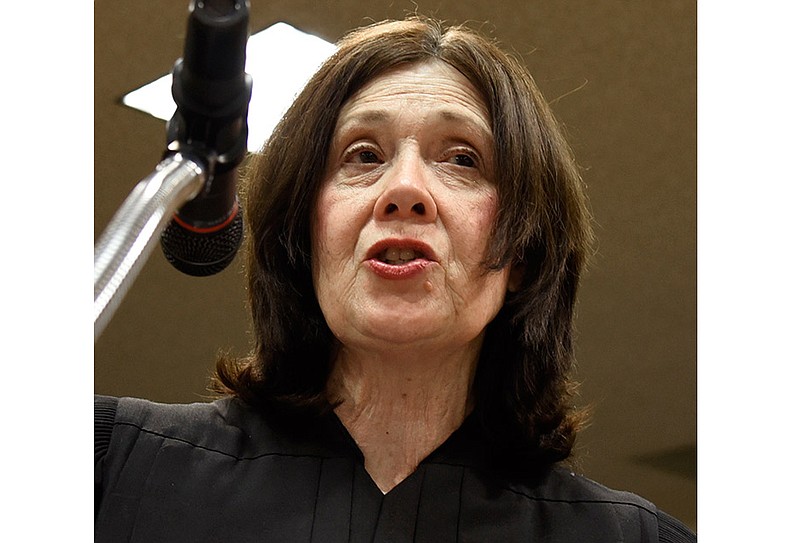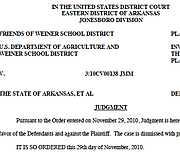Cole County Presiding Judge Pat Joyce last week ruled parts of a new law this year related to sexual assaults are unconstitutional because of their effects for defense attorneys and their work.
The law at issue - a section of state Senate Bill 569 known as the Sexual Assault Survivors' Bill of Rights - was signed by Gov. Mike Parson in July.
The law contains multiple provisions involving sexual assaults - including its original purpose to better track and process sexual assault evidence collection kits, as well as later additions about telehealth services for evidence collection and protocols for forensic examinations of survivors and their interviews with criminal justice officials.
It's that last set of items in the survivors' bill of rights section that deals with survivors' interviews with law enforcement and prosecuting or defense attorneys with which the state's public defender system took issue.
A lawsuit by Mary Fox, director of the state's public defender system, some assistant public defenders and men charged with one or more sexual offenses argued the law would prevent public defenders from effectively interviewing survivors because the law would compel defense attorneys to act in ways against their clients' interests.
After hearing the case last month, Joyce ruled in an order last week that the parts of the survivors' bill of rights which require defense attorneys to "convey any information or take any other action" are unconstitutional.
The law required defense attorneys, before interviewing a survivor, to inform them of their rights per the new law and other rules and regulations of the state departments of Public Safety and Health and Senior Services, and that document would have to be signed by the survivor.
Jeff Esparaza, the attorney who argued the lawsuit before Joyce last month, argued then: "Our primary concern is not being the government's messenger. We have absolutely no policy dispute with testing rape kits or doing telehealth for victims; we've got not problem with any of that."
Esparaza said the state should protect the interests of accusers, but that's not the role of public defenders, and the adversarial system was at stake.
Joyce also ruled the state and Attorney General Eric Schmitt are not allowed to enforce the unconstitutional parts of the law, including parts that would require defense attorneys "to summon any person on behalf of any other person."
The law gave a right to a survivor to have an employee or volunteer of a rape crisis center present during an interview with an attorney, though that was limited by whether one could be summoned in "a reasonably timely manner."
The presence of a support person of the survivor's choosing was limited by whether an attorney "determines in his or her good faith professional judgment that the presence of that individual would be detrimental to the purpose of the interview."
Esparaza had also argued it's already logical that defense attorneys show compassion to survivors: "We don't gain anything by bullying or attacking victims, survivors. Jurors don't take kindly to people who bully victims. Our credibility is at stake in front of juries," and that kind of behavior is also not viewed kindly by judges.
However, Joyce did not agree with all of the public defenders' arguments in the lawsuit. She did not find the new law itself had been unconstitutionally passed through the state Legislature because of procedural issues, or because it was too broad and not limited to a single subject.


